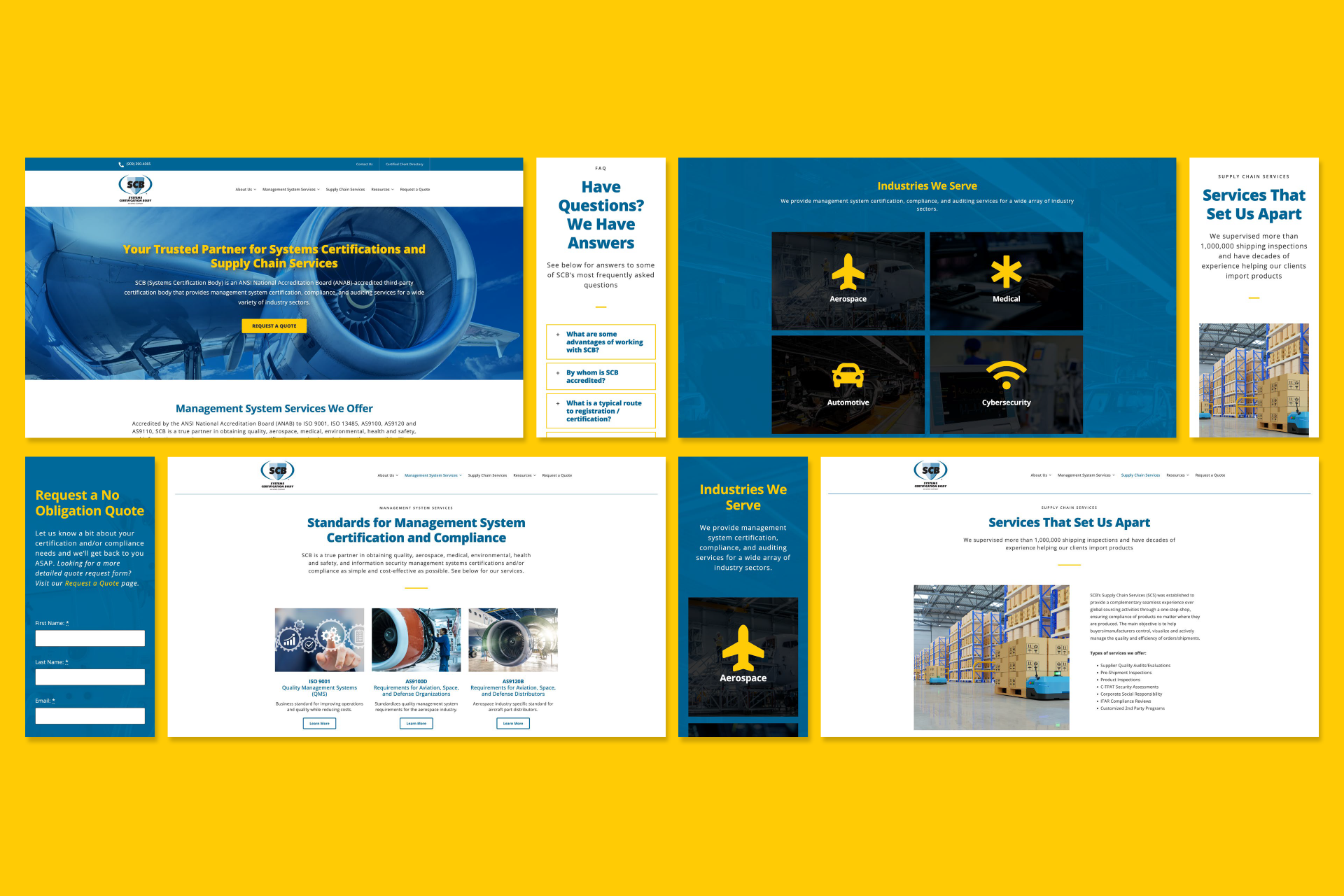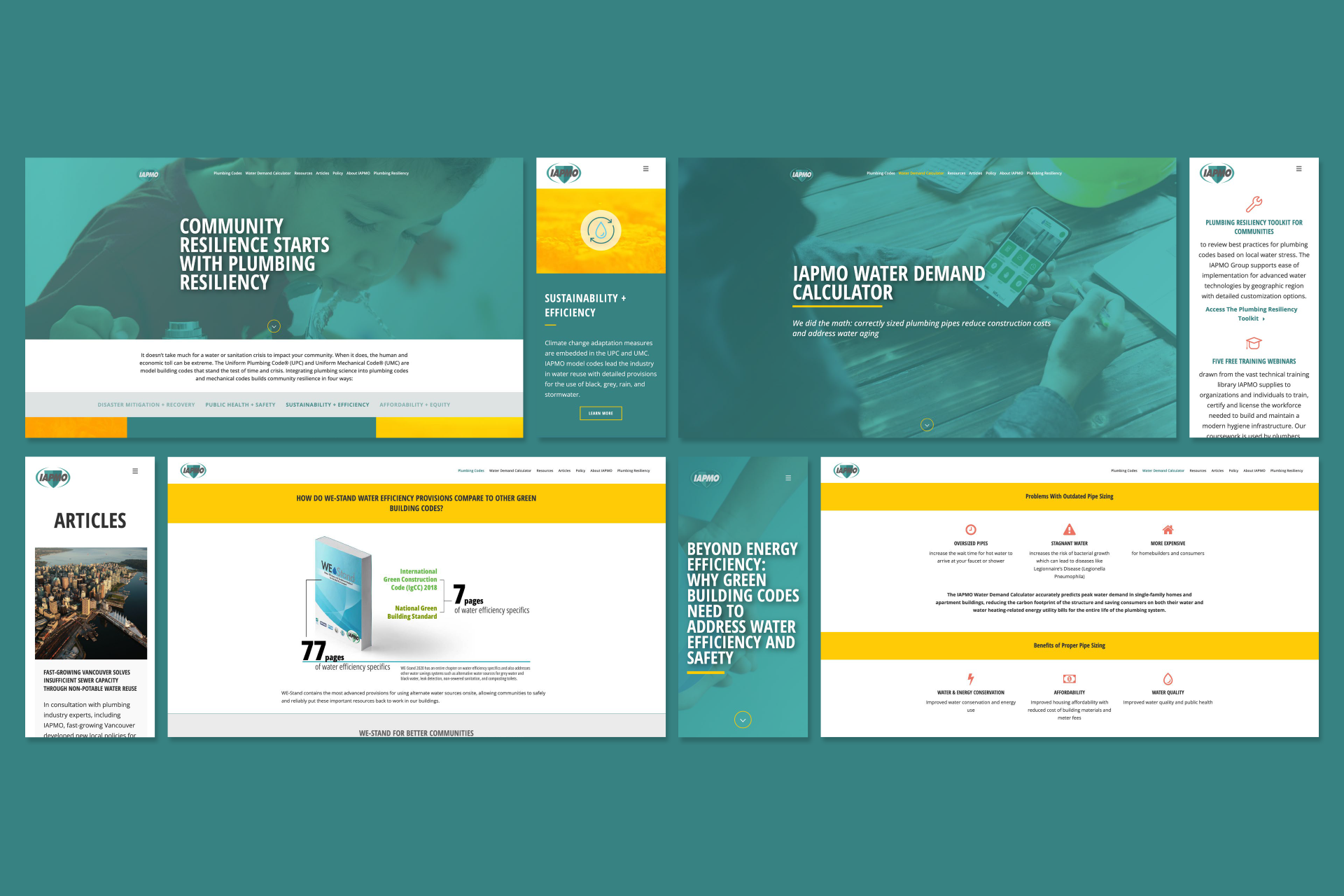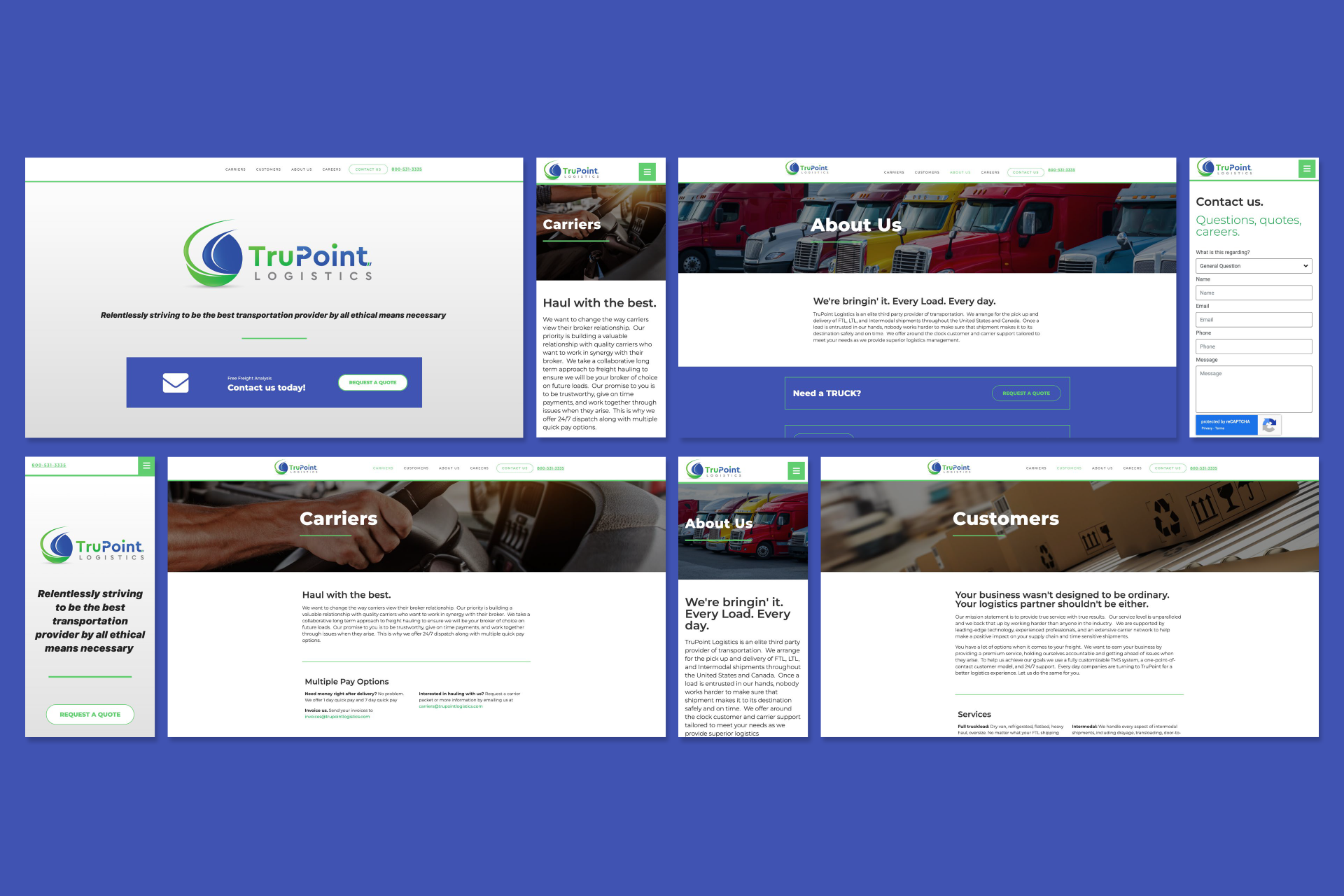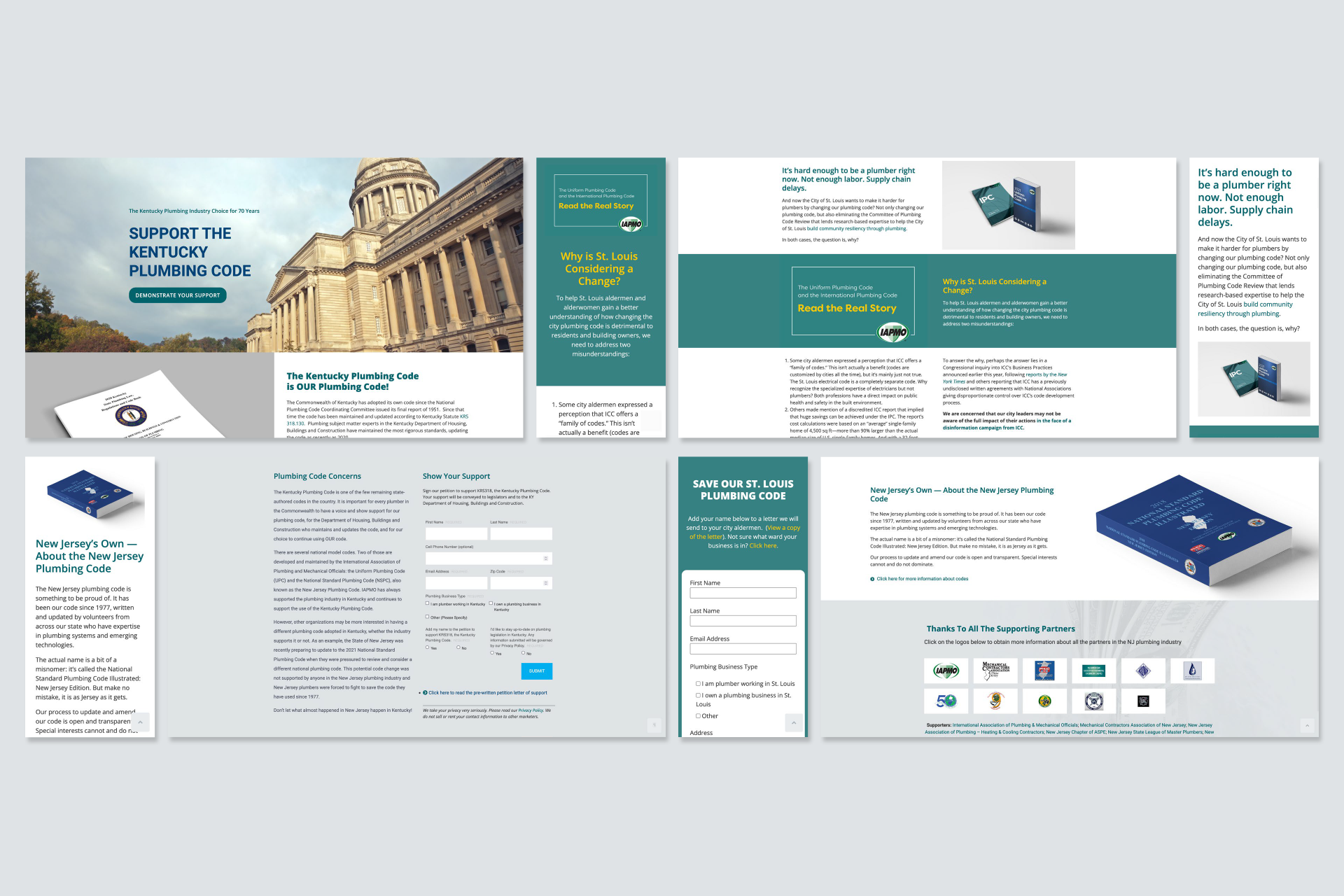WEB DESIGN
Collection of websites and microsites. See below for descriptions.
IAPMO SCB
IAPMO Systems Certification Body (SCB) is an internationally accredited third-party certification body that provides management system certification and auditing services for a wide variety of industry sectors, including aerospace, cyber security, information technology, defense, medical, automotive, and medical/recreational cannabis, among others. Until recently, IAPMO SCB was named and branded as IAPMO R&T ISO Registrar. Despite its extensive service range, the brand suffered from misconceptions due to its naming and association with its parent company, the International Association of Plumbing and Mechanical Officials (IAPMO). This confusion was further exacerbated by the company’s website being intertwined with IAPMO’s web infrastructure, leading to mixed messages about its expertise and focus.
The goal of this project was to establish an independent, stand-alone website for IAPMO SCB that effectively distinguished it from IAPMO’s predominant plumbing focus. The new website needed to be visually striking, user-friendly, and clearly communicate SCB’s diverse certification capabilities.
The newly designed website successfully encapsulated SCB’s identity as a versatile systems certification body and steered clear of imagery and content that had previously clouded the brand’s image. The design was clean and intuitive, facilitating easy navigation and access to information. Post-launch, the website saw a significant uptick in engagement. This project not only revamped the online presence of IAPMO SCB but also played a crucial role in clarifying its brand identity and expanding its market reach.

UNIFORM CODES
UniformCodes.org is a public-facing resource created by The IAPMO Group to explain the nuances of plumbing and mechanical codes and their significant impact on communities. The primary goal of this project was to design and develop a user-friendly and informative website aimed at educating visitors about the importance of plumbing and mechanical codes in ensuring community resilience. UniformCodes.org emerged as a comprehensive hub, offering a wealth of resources, including insightful articles, practical guides, and free downloadable materials, designed to inform and empower communities in achieving plumbing and mechanical resilience. This platform is tailored for a diverse audience, including legislators, community leaders, and general consumers.

TRUPOINT LOGISTICS
TruPoint Logistics, a third-party transportation provider, specializes in coordinating full truckload (FTL), less-than-truckload (LTL), and intermodal shipments across the United States and Canada. As a new player in the logistics field, TruPoint came to me for a new website to kickstart their business. Initial meetings were held with TruPoint to understand their target audience, brand inspirations, and specific website requirements. The design focused on presenting TruPoint’s services in a clean, concise, and accessible manner, catering to potential clients seeking efficient logistics solutions. The finished website served as a critical tool for TruPoint Logistics in establishing their brand and set a solid foundation for the company’s growth and success in the transportation and logistics industry.

RAPID-RESPONSE MICROSITES FOR CODE ADOPTION
Plumbing codes, like all building codes, are rules imposed by cities, counties or states that provide for safe and civilized living. In the United States, the plumbing code landscape is dominated by two main models: the Uniform Plumbing Code (UPC), developed and published by The IAPMO Group, and the International Plumbing Code (IPC), developed and published by the International Code Council (ICC). These codes are adopted at various jurisdictional levels – state, county, or city.
The adoption of plumbing codes is a dynamic and politically influenced process. Periodically, jurisdictions consider changing their adopted model code, which can impact the prevalence and influence of the UPC. The IAPMO Group sought a rapid-response solution to address situations where the adoption of the UPC was under threat.
The IAPMO Group asked me to develop a series of templated microsites that could be quickly launched to inform, advocate, and mobilize support for the UPC in jurisdictions considering a code change. These sites needed to be swiftly customized and deployed as per the specific needs of different jurisdictions facing UPC adoption challenges. The resulting sites provided critical information about each situation, articulated the benefits of retaining the UPC, and facilitated community action through petition forms, which enabled visitors to either directly submit letters of support to legislators or add their details to a collective support letter.

